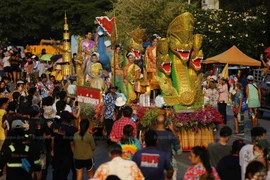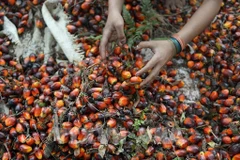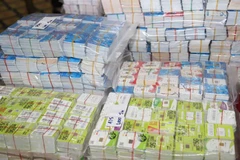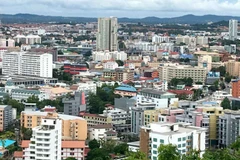Bangkok (VNA) – Thai health authorities have raised concerns about a possible increase in COVID-19 cases following the Songkran festival, citing factors such as close contact during water-splashing events and extensive nationwide travel.
Dr. Yong Poovorawan, head of the Clinical Virology Department at Chulalongkorn University, indicated that COVID-19 cases in Thailand tend to rise in early April, coinciding with the Songkran celebrations. This pattern differs from other respiratory illnesses like influenza, which typically surge during the rainy season or after the start of the academic year.
Drawing from a study of over 8,000 COVID-19 cases from the previous year, Dr. Yong noted that the virus's spread is facilitated by crowded gatherings in confined spaces and increased mobility during the festival period.
While acknowledging that the COVID-19 virus is more transmissible than the influenza virus, Dr. Yong emphasised that its current severity is comparable to that of the common flu. Consequently, treatment primarily focuses on symptom management, except for vulnerable groups such as pregnant women, individuals with obesity, or those with compromised immune systems. These populations may require antiviral medications and close monitoring to prevent complications.
As of now, the JN.1 Omicron subvariant remains the dominant strain in Thailand, accounting for approximately 65% of COVID-19 cases, followed by the XEC and LP.B.1 subvariants./.




























